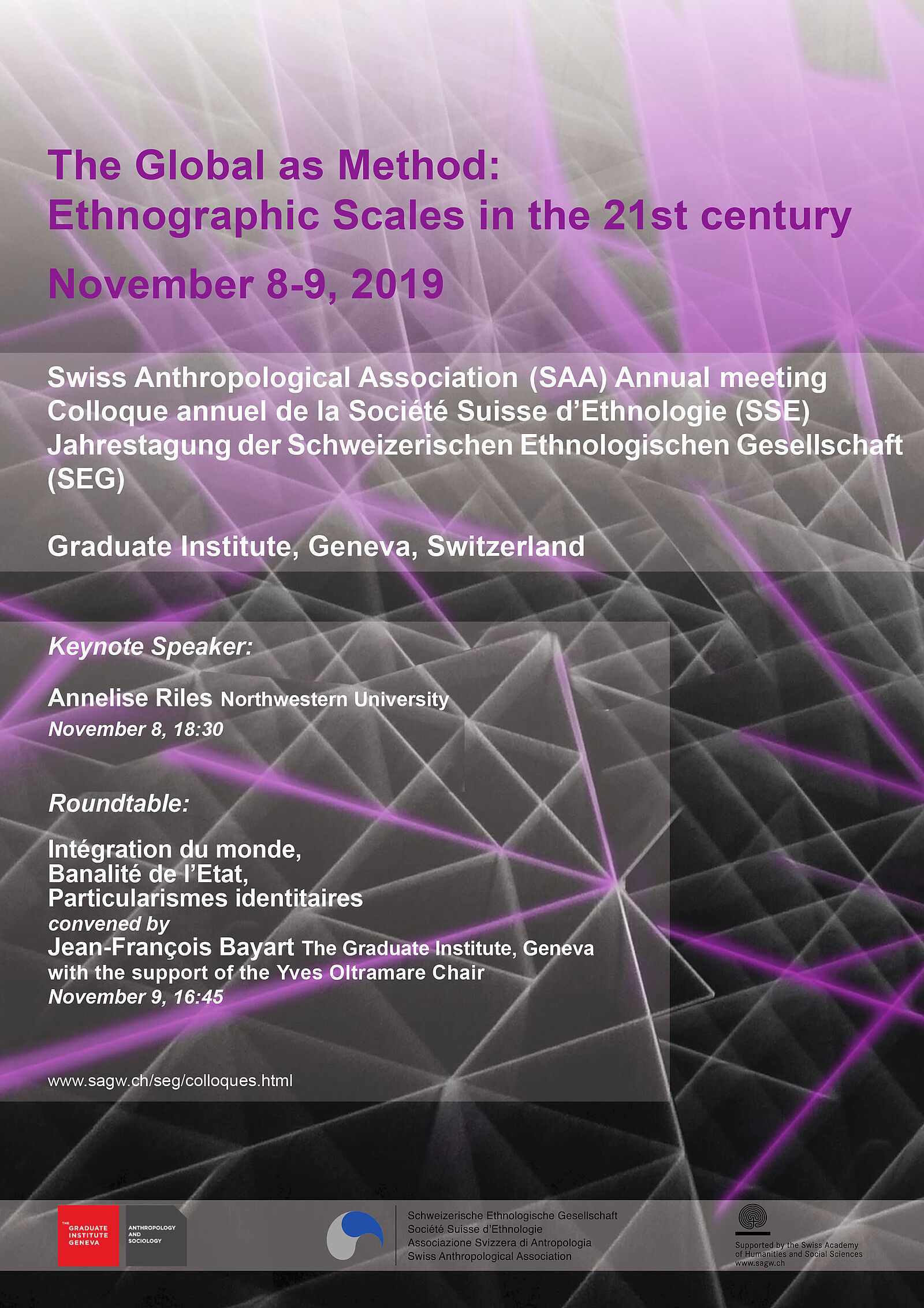The Global as method:
Ethnographic Scales in the 21st century
SEG Jahrestagung
Colloque Annuel de la SSE
Annual Meeting of the SAA
Geneva, November 8-9, 2019
The global has become a truism permeating most of current anthropological research: ‘it’ denotes a spatial dimension – the global South or North; it can serve to gauge the pulse of the world – global crisis and inequalities; and has increasingly come to define the terms of our own epistemic engagements – global health, global capitalism, global governance, etc. Despite its self-evident facticity, how exactly does one critically approach the global? Or, more to the point, how does one research the global as method and across scales, temporalities, from the local to the planetary? How do we grapple with the global as contingent, ever changing processes that are continually reimagined, contested, differently appropriated and reconfigured? As an object of study, it poses challenges for anthropologists always attentive to how people narrate and experience in everyday life their membership in or exclusion from global connections. If globalisation is traceable across multiple phenomena and movements – people, objects, ideas, texts, images, labour regimes, ecologies, technologies or emergent social, political and economic forms – we propose to think through how the global is mobilised and challenged in the practice of ethnography. Whether at home or abroad, inside or outside, in the center or its periphery, we seek to examine the making of scales – spatial and temporal – as an analytic, methodological and epistemological endeavor.
The Global as Method conference invites us to engage the promises and challenges of researching and bridging conventional North/South, local/global and disciplinary divides. Through the formulation of original research agendas and methodologies, the conference aims to take stock of the momentous transformations that became manifest in the final decades of the 20th century; simultaneously, it looks ahead to imagine how the global as method may chart new directions for anthropology in the opening decades of the 21st century.
